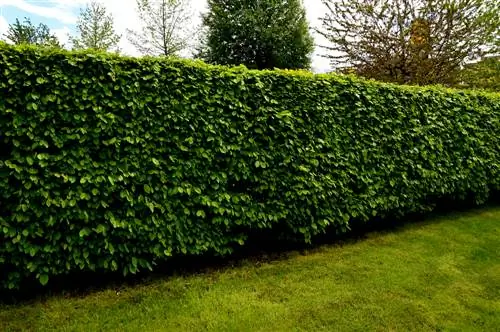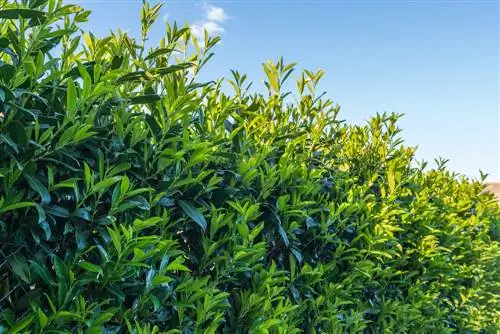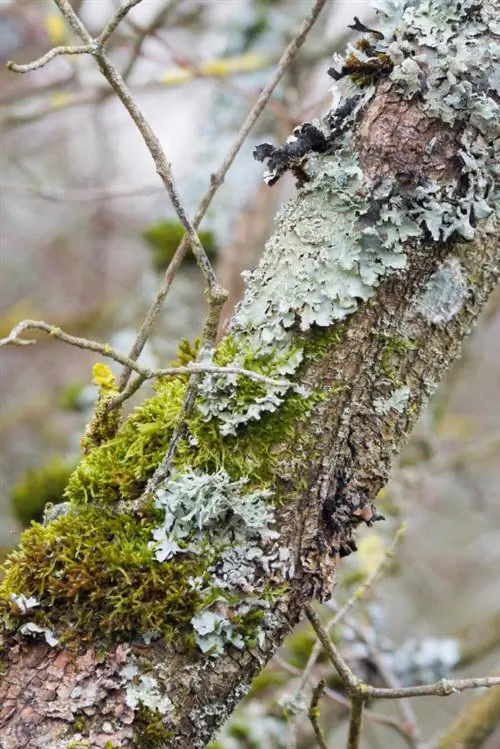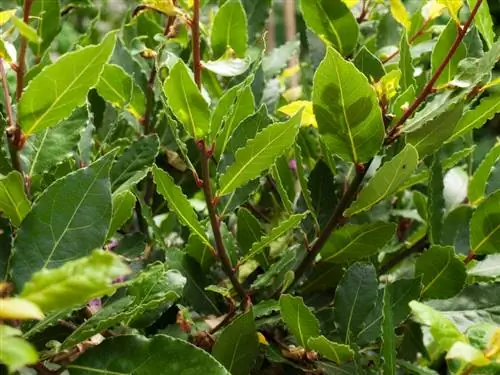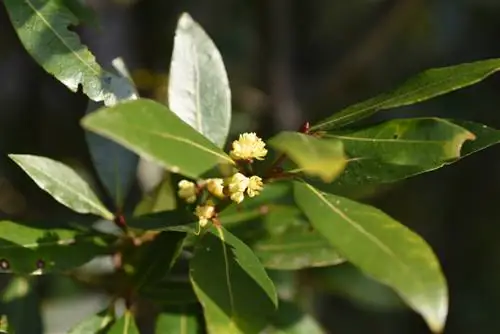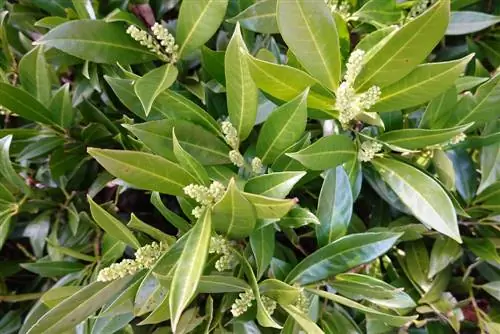- Author admin leonars@hobbygardeners.com.
- Public 2023-12-16 16:46.
- Last modified 2025-01-23 11:22.
The cherry laurel has fallen into disrepute. Therefore, gardeners are encouraged to replace it with other plants. But there are other reasons why cherry laurel may be unsuitable. You can find out which alternatives we find particularly successful in this article.
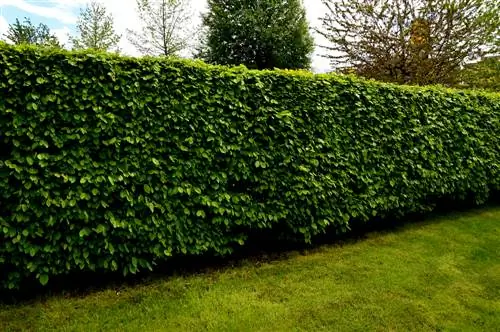
Why should you plant alternatives to cherry laurel?
You should plant alternatives to cherry laurel because theecological value is considered relatively low. All parts of this rose plant are poisonous to humans and animals.
Exception: Blackbirds and other thrushes eat and tolerate the fruits of the laurel cherry because they do not touch their poisonous seeds.
In order to attract insects and thus offer many endangered bird species a greater choice of food, it is better to choose a cherry laurel alternative.
What is the best alternative to cherry laurel?
One of the best alternatives to cherry laurel is thehornbeam, which, despite its name, belongs to the birch family. But as is well known, the cherry laurel is not one of the laurel plants. As a hedge, the hornbeam grows up to 70 centimeters high.
In addition, we primarily recommend othernative species. Here are beautiful options with their highlights at a glance:
- Common beech: orange-red leaf color in autumn
- Field maple: inexpensive and fast-growing
- Blackthorn: edible blue-black fruits
- Cornelian cherry: small yellow flowers as food for bees, yellow-orange leaves in autumn, edible fruits
- Dog rose: pretty pink flowers, orange-red rose hips
Which cherry laurel alternatives for which requirements?
Depending on your requirements, certain cherry laurel alternatives are better than others. As an example, we give you anOverview of common problems and possible replacement plants for the cherry laurel:
- Garden too small for a cherry laurel hedge: ivy, loquat, holly, olive willow, kapuka
- Garden in a very cool region: holly, rhododendron
- Garden with extremely calcareous soil: Japanese Aukube
Tip
Real laurel as a similar alternative to cherry laurel
If you would like a plant from the Mediterranean region in your garden and are looking for an ecologically more valuable alternative to cherry laurel, then real laurel could be considered. Compared to its namesake, it is non-poisonous and edible, which also pleases the insect and bird world.

